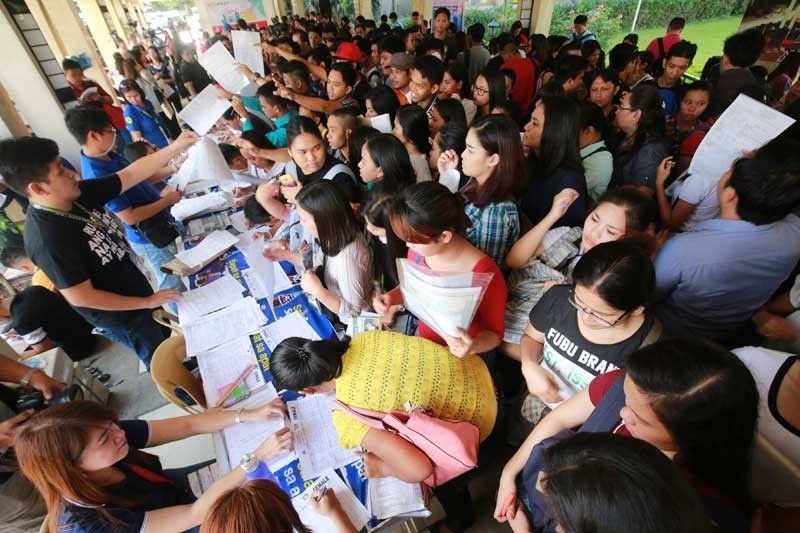Senior high graduates more likely to earn higher wages than junior high graduates — study

MANILA, Philippines — Senior high school graduates are more likely to earn higher wages than graduates of the old high school curriculum, a new study by a state think found, lending new evidence in favor of the K to 12 program and its impact on students' employment prospects.
In a study titled “Senior high school: What do additional years of basic education schooling buy?,” the Philippine Institute for Development Studies (PIDS) said that graduates of senior high tend to be paid about 19% more than junior high school graduates. This is based on PIDS’ analysis of labor market outcomes among high school graduates.
This is likely “due to the differences in the occupation types where they are employed,” PIDS noted, with senior high graduates more likely to clinch medium-skill work (jobs requiring advanced literacy, numeracy and interpersonal skills) compared to those who stopped at junior high.
Specifically, PIDS found that those who finished Grade 12 were more likely—about 16.2 percentage points—to be employed in medium-skill work than low-skill occupations (jobs that focus on routine manual tasks) than those who only completed Grade 10.
PIDS noted, however, that there is no difference between senior and junior high graduates in terms of the probability of being a wage worker, entrepreneur or an unpaid family worker.
Similarly, students who attended two more years of high school were "as likely" to be in the labor force, unemployed or underemployed compared to those who did not attend the last two years of SHS.
While the findings of SHS education's impact on students’ employment prospects appear engaging, PIDS said that it is important to emphasize that these benefits should be considered alongside the additional costs associated with SHS attendance.
“The government had to hire additional teachers, develop new modules, and construct more classrooms to accommodate SHS students. Households have to extend providing pocket money to their children attending SHS,” the study read.
It also pointed out that there is the “opportunity cost of time” (or loss of potential gain) for senior high students who could have already been working had they stopped at junior high but were instead still attending classes.
Benefits should not be ‘oversold’
PIDS said that these findings point to tangible benefits for students who have undergone and will undergo two more years of high school—a pain point that education officials and supporters of K to 12 previously smoothed over by promising to produce employable graduates.
"If there are any winners from the SHS policy, it is likely to be those children who were induced to take additional years of training but would have otherwise stopped with 10 years of basic education in the old curriculum,” PIDS said.
“Effectively communicating these potential benefits to parents and caregivers of future SHS students may dispel folk beliefs that SHS is only a waste of family resources,” PIDS added.
PIDS also said that while reverting back to the old K to 10 curriculum may be financially more rewarding in the medium term, “the K to 12 [Kinder to Grade 12] program may be a superior option in the longer term based on projections.”
RELATED: Explainer: How the 'K+10+2' system may not address root issues, challenges that hounded K to 12
However, the state think tank also cautioned against "overselling" the senior high school program, "especially as an answer to all ills in the education sector."
While these new pieces of evidence are in favor of the senior high program, “these do not necessarily imply that the implementation of the SHS program had been perfect,” PIDS said.
Previous studies by PIDS and other private sector groups have already pointed to low confidence among employers to hire senior high graduates. In 2017, the Philippine Business for Education found that only 20% of the country’s 70 leading companies were willing to accept senior high school graduates.
- Latest
- Trending































